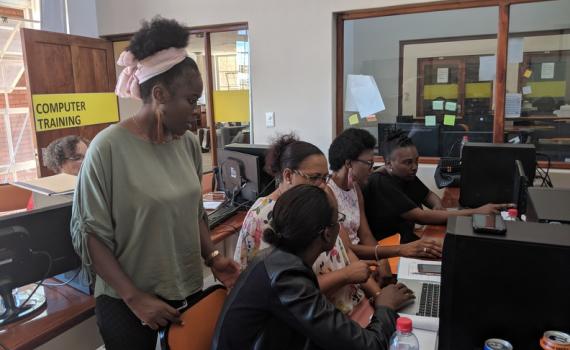
Following a National Stakeholder Conference to discuss the new draft Copyright and Related Rights Bill under development in Namibia, EIFL submitted written comments on the Bill to the Business and Intellectual Property Authority (BIPA), the body that administers IP (Intellectual Property) rights in Namibia.
The existing Copyright Act (1994) has no explicit provisions for libraries or persons with disabilities. The review is an opportunity to address this issue and to update the law so that library users and society at large can benefit from digital developments that are transforming library and information services around the world.
The review is timely because the COVID-19 pandemic has brought into focus the challenges of compliance with copyright laws, and a heightened awareness of the importance of copyright exceptions especially for the online environment. It is an opportune moment for Namibia to adopt a world-class copyright law that provides fair access for people to enjoy copyrighted works for education, innovation and personal development, while protecting the rights of creators and other rightsholders.
There are new exceptions in the Bill for libraries, education, text and data mining and persons with disabilities. However the new exceptions, as currently drafted, fall short of addressing practical uses in the digital environment and they won’t be fully effective because they are hampered by conditions that are unnecessarily restrictive.
The omission of fair use (that appeared in previous draft versions of the Bill) or a fair dealing provision (that is in the existing Copyright Act, 1994) is also out of step with current developments. A flexible exception, such as fair use or fair dealing, helps to keep the law up-to-date with rapidly changing technologies, and with new ways of learning and sharing, and it accommodates uses not foreseen when the law was developed, such as the mass closure of schools, universities and libraries during a pandemic.
EIFL provided written comments, and suggestions for amendments, on five key areas in the Copyright Bill: education, libraries, fair use/fair dealing, persons with disabilities and duration of protection. We urged BIPA to embrace the digital environment for the benefit of rightsholders and users so that no-one is left behind.
We hope that our concerns will be addressed when the Bill is finalized and sent forward for approval to the Cabinet and National Assembly.
Background
EIFL participated in a National Conference on the Copyright Bill that took place in Namibia on 18 November 2021 in hybrid mode. The keynote address was given by the Minister of Industrialisation and Trade, Hon. Lucia Lipumbu, and opening remarks were by the African Regional Intellectual Property Organization (ARIPO) and the World Intellectual Property Organization (WIPO). EIFL presented comments on the Bill from the perspective of users of copyrighted material.
SHARE / PRINT









